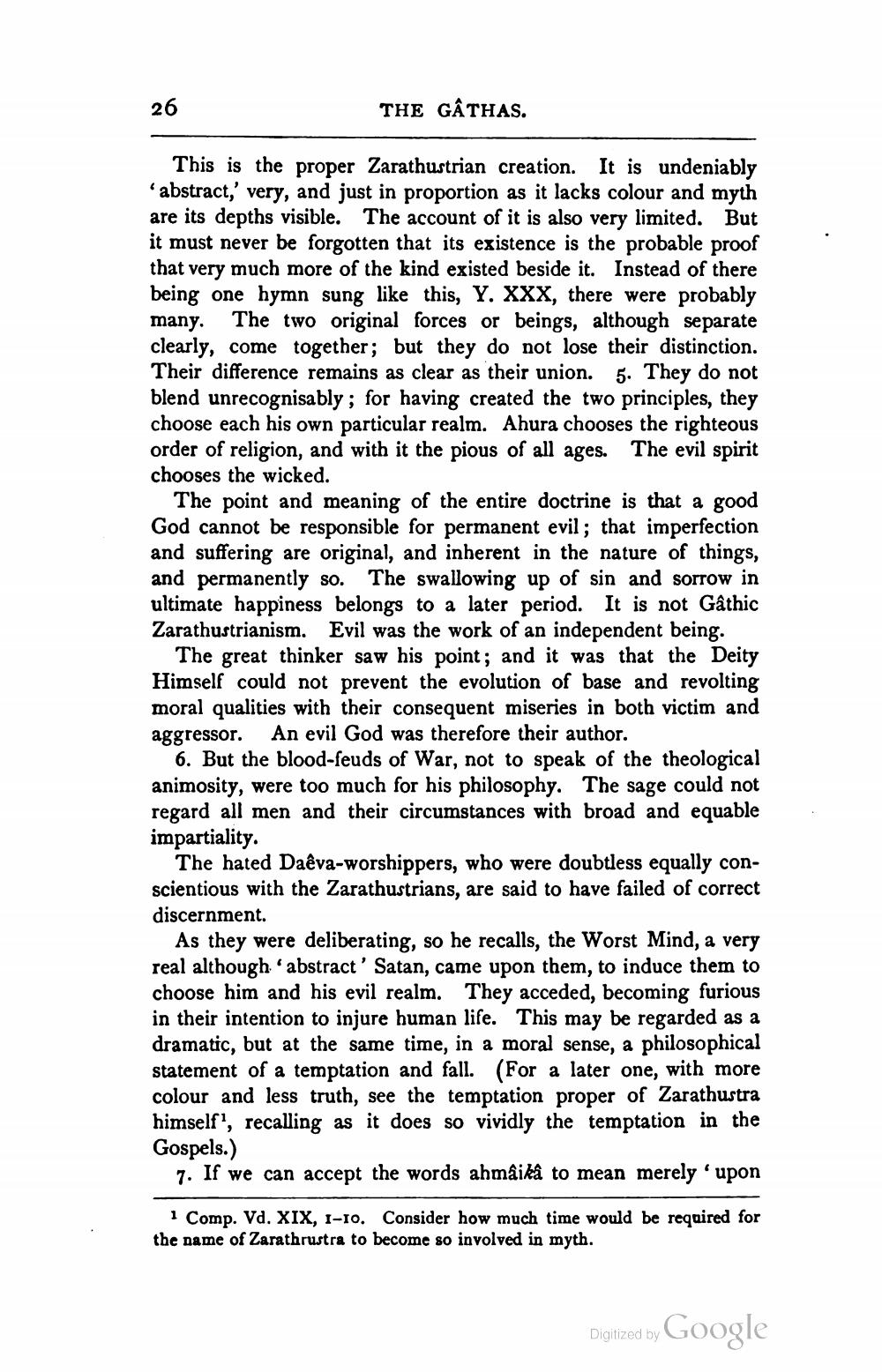________________
26
THE GÂTHAS.
This is the proper Zarathustrian creation. It is undeniably 'abstract,' very, and just in proportion as it lacks colour and myth are its depths visible. The account of it is also very limited. But it must never be forgotten that its existence is the probable proof that very much more of the kind existed beside it. Instead of there being one hymn sung like this, Y. XXX, there were probably many. The two original forces or beings, although separate clearly, come together; but they do not lose their distinction. Their difference remains as clear as their union. 5. They do not blend unrecognisably; for having created the two principles, they choose each his own particular realm. Ahura chooses the righteous order of religion, and with it the pious of all ages. The evil spirit chooses the wicked.
The point and meaning of the entire doctrine is that a good God cannot be responsible for permanent evil; that imperfection and suffering are original, and inherent in the nature of things, and permanently so. The swallowing up of sin and sorrow in ultimate happiness belongs to a later period. It is not Gâthic Zarathustrianism. Evil was the work of an independent being.
The great thinker saw his point; and it was that the Deity Himself could not prevent the evolution of base and revolting moral qualities with their consequent miseries in both victim and aggressor. An evil God was therefore their author.
6. But the blood-feuds of War, not to speak of the theological animosity, were too much for his philosophy. The sage could not regard all men and their circumstances with broad and equable impartiality.
The hated Daêva-worshippers, who were doubtless equally conscientious with the Zarathustrians, are said to have failed of correct discernment.
As they were deliberating, so he recalls, the Worst Mind, a very real although'abstract' Satan, came upon them, to induce them to choose him and his evil realm. They acceded, becoming furious in their intention to injure human life. This may be regarded as a dramatic, but at the same time, in a moral sense, a philosophical statement of a temptation and fall. (For a later one, with more colour and less truth, see the temptation proper of Zarathustra himself', recalling as it does so vividly the temptation in the Gospels.)
7. If we can accept the words ahmaikå to mean merely upon
i Comp. Vd. XIX, 1-10. Consider how much time would be required for the name of Zarathrustra to become so involved in myth.
Digitized by
Digitized by Google




